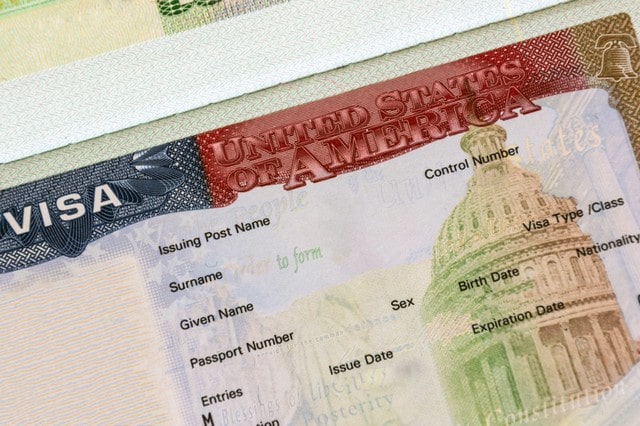Employment Immigration Attorney
Experienced Employment Immigration Lawyer
Employment-based immigration refers to the several pathways that would allow a foreign worker or foreign national to live and work in the U.S. for varying lengths of time.
Two categories of immigrants may benefit from employment-based immigration; foreign workers who wish to enter the U.S. to work and those already present in the U.S. but without the required work permit or authorization. If you belong to any of these categories, it is important that you're aware of how the system works. This knowledge could help you assess your eligibility for a work visa or employment-based green card and guide you as you begin the application process.
But the U.S. immigration system is notoriously complex and expensive. Going through the process alone is risky. Any mistakes you make during the application process could lead to a denial, meaning that all the money, time, and resources you put into the application were wasted. For these and many more reasons, many immigrants in your shoes rely on the help of skilled employment immigration attorneys who can help make the process as smooth and efficient as possible.

Competent employment immigration lawyers like the attorneys who work at the Law Offices of Mathew M. Chacko, PC, understand the laws and rules that govern employment immigration in the U.S. They have up-to-date knowledge of the employment immigration application requirements. They can help you move towards your goals with minimal stress.
Read on for more details on employment-based immigration in the U.S. and some specific ways we can serve you.
How Employment-Based (EB) Immigration Works
A foreign national seeking to work in the U.S. must first obtain permission from the immigration authorities and, in some cases, the Department of Labor, before proceeding.
There are two pathways to getting the permission you require. You could get a temporary work visa or an employment-based green card that would allow you to work in the U.S. permanently.
Temporary Work Visas
Temporary work visas, such as visas in the H, L, and P classes, are nonimmigrant visas. They allow you to work in the U.S. for a fixed period. The process is usually initiated by your employer, who must file a petition (Form -I-129-Petition for Nonimmigrant Worker) with the United States Citizenship and Immigration Services (USCIS) and obtain a labor certification from the Department of Labor on your behalf. You may not qualify for this visa category if you don't have a U.S. job offer or employer sponsoring you.
Employment-Based Green Card
The U.S. government issues 140,000 employment-based immigrant visas to foreign nationals each year. These visas are offered to those who qualify for an immigrant visa under any of the five preference categories. Applicants who meet the requirements under any category can obtain a green card and may naturalize as citizens as soon as they are eligible.
The five categories are explained below in order of priority.
EB-1 (First Preference) Visa Category
This category of employment-based immigrant visas is reserved for priority workers and persons of extraordinary ability as follows:
- Individuals who have been nationally or internationally recognized for their extraordinary ability in certain fields, such as the sciences, arts, education, or athletics
- Outstanding professors and researchers with at least three years of teaching or research experience and international recognition
- Multinational managers or executives of a U.S. company who had worked with an affiliate or branch of the company abroad for at least a year in the three years before the application is filed.
The application process for this visa category begins with the candidate's employer, who must file Form I-140, Petition for Alien Worker, with the USCIS. But this condition does not apply to those who qualify as extraordinary workers (that is the first sub-group listed above). They are allowed to file their petition themselves.

EB-2 (Second Preference) Visa Category
The EB-2 employment visa category applies to the following groups of people:
- Professionals who have an advanced degree beyond a bachelor's degree. Alternatively, they should have a bachelor's degree and at least five years of progressive experience in their field
- Individuals with exceptional ability or expertise above the ordinary in the sciences, arts, or business.
Applicants in this category need a labor certification and a job offer from a U.S. employer to apply for a green card. The employer would, in turn, need to file Form I-140 with the USCIS on their behalf.
The USCIS can waive the requirement of a job offer and labor certification for EB-2 applicants if they can show that the waiver is in the interest of the United States. An immigrant who has obtained a national interest waiver can file Form I-140 independently.
If you would like to apply for this waiver, your application must meet the general and specific requirements for your field, if any. Our immigration lawyers can assess your case and help you assemble your application to meet all the requirements to improve your chances of success.
EB-3 (Third Preference) Visa Category
The EB-3 visa category applies to the following groups of foreign workers;
- Skilled workers whose jobs require at least two years of training or experience. The qualifying jobs must be full-time and not temporary or seasonal.
- Professionals who have and whose jobs require a bachelor's degree and membership in a professional body
- Other unskilled workers whose jobs require less than two years of training to perform.
Immigrants who qualify under this category must have a job offer, and their employer must obtain a labor certification on their behalf. This is because they can only perform work for which qualified workers are unavailable in the U.S.
EB-4 (Fourth Preference) Visa Category
Those eligible under this category are known as special immigrants. They include religious workers and employees of certain international organizations.
Labor certification is usually not required for those who qualify under this category, although some exceptions exist. In all cases, the applicant must file a petition with the USCIS (Form i-360) or have it filed on their behalf. The EB-4 visa application process can only begin once the petition is approved.
EB-5 (Fifth Preference) Visa Category
The EB-5 visa category was created to stimulate the U.S. economy by making it easy for immigrant investors to settle in the country. To qualify, applicants for the EB5 investor visa must invest or be prepared to invest a large sum (usually a minimum of $1,050,000) in a new business enterprise that is guaranteed to create permanent jobs for U.S. workers.
There are other requirements you'd need to meet to become an immigrant investor and obtain a U.S. green card. Our attorneys can help you understand everything you need to do and guide you through the immigration process until you achieve your goals.
EB Visa Application Procedure
The application procedure for EB visas depends on several factors, including whether or not the applicant is physically present in the U.S. Applicants who entered the U.S. on a temporary visa or other lawful grounds may be eligible to adjust their immigration status to permanent residents. Otherwise, they would need to process their application at the U.S. consulate or embassy in their home country via a procedure known as consular processing.
The grant of an EB visa is not automatic. Even though you may be eligible, you need to provide the immigration authorities with evidence and documents to back your application. You may also be required to attend a visa interview. If you submit wrongly prepared forms or incomplete documents or fail to provide the right answers at your interview, your application may be delayed or, worse, denied.
To minimize the risks of such an adverse outcome, consider getting professional help from a skilled immigration lawyer who understands what is required at each stage of the immigration process.
How Our Competent Employment Immigration Attorneys Can Help
At the Law Offices of Mathew M. Chacko, PC, we understand the difficulties foreign workers and their employers encounter navigating the complex immigration system. But we have the skill backed by many years of experience to overcome the hurdles presented by the system to guide you toward a positive outcome.
We offer the full range of employment immigration services, including the following:
- Case evaluations to determine your eligibility for a work visa or employment-based green card
- Document review to ensure the completeness of your application
- Visa interview preparation to ensure you know what to expect when you face the immigration officers
- Immigration law advice to help you make informed decisions where necessary
- Individual and corporate representation before the applicable government agencies such as the USCIS and Department of Labor.
Over the years, we have recorded a near 100 percent success rate in our immigration services as a testament to our skill and competence. You can trust us to handle your case diligently and do all we can to help you achieve positive results.

Contact Our Experienced Employment Immigration Lawyers
The employment immigration process could be tough. But you can avoid or minimize the pressures of the application process with us by your side.
We are located in Virginia but serve clients across all 50 states. So do not hesitate to contact us with your questions if you have any or want to begin the application process. We are here to serve you.
